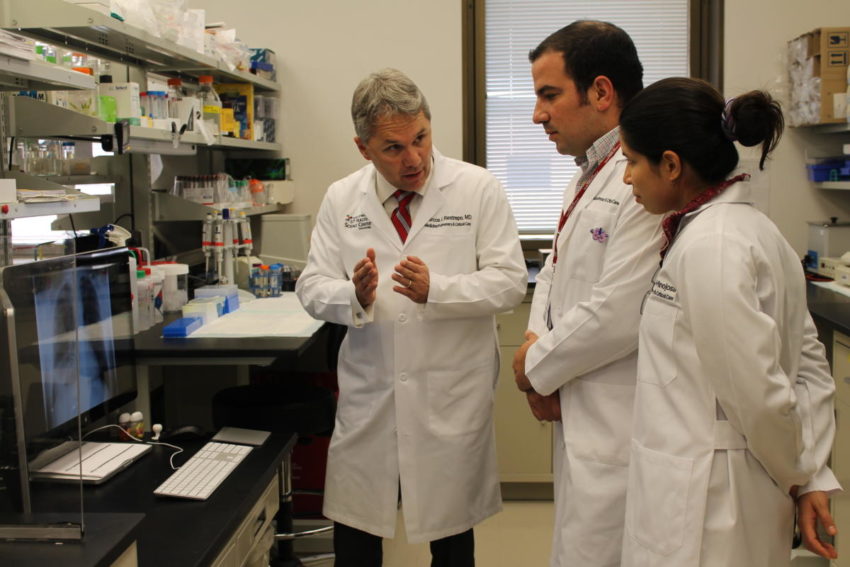A study coordinated by The University of Texas Health Science Center at San Antonio may stem overuse of antibiotics in treating pneumonia.
The findings demonstrate a low prevalence of Methicillin-resistant Staphylococcus aureus (MRSA) infection in patients with pneumonia coming from the community. It is hoped that reduced use of antibiotics because of the new information will result in a decrease in antimicrobial resistance, specifically in patients with community-acquired pneumonia.
MRSA pneumonia was present in 3 percent of 3,193 pneumonia patients worldwide who had microbiological tests within 24 hours of entering a hospital, according to the international study. The numbers reported are much lower than previously reported by other investigators.
The investigators developed a study group called the Global Initiative for MRSA Pneumonia (GLIMP) with the goal of establishing MRSA prevalence and risk factors of pneumonia patients who require admission to the hospital. The study results were published Sept. 1 in the journal Lancet Infectious Diseases.
The study group found three risk factors associated with MRSA pneumonia: previous MRSA infection, recurrent skin infections and severe pneumonia disease.
The study was performed in 3,193 adult patients with pneumonia admitted to hospitals around the globe. A total of 222 hospitals from 54 countries on six continents collaborated. MRSA pneumonia varied in prevalence by country and continent.
Researchers found the highest prevalence of MRSA infections in the Americas. According to GLIMP data, 5.4 percent of patients tested in South America were positive for MRSA pneumonia. In North America the figure was 4.8 percent. In Africa and Oceania (including Australia), 3.1 percent of patients tested had MRSA; in Asia the figure was 2.5 percent; and in Europe it was 2.4 percent.
“These data show a low prevalence of MRSA among patients hospitalized with pneumonia, and they also show specific risk factors that may potentially help guide clinical use of antibiotics,” said study corresponding author Marcos I. Restrepo, M.D., M.Sc., associate professor in the School of Medicine at the UT Health Science Center and a member of the Division of Pulmonary and Critical Care Medicine.
MRSA is of particular concern in the management of lower respiratory tract infections. GLIMP is the first worldwide study of MRSA prevalence in patients with community-acquired pneumonia.
“Local pneumonia management guidelines should be developed that consider the local prevalence of MRSA in their respective communities and presence of specific MRSA risk factors at the time of hospitalization of patients with community-acquired pneumonia,” the authors wrote.
“Everyone in the world should follow local guidelines to treat patients with pneumonia, including MRSA pneumonia,” said study co-first author Luis F. Reyes, M.D., graduate student of the translational science Ph.D. program in the Division of Pulmonary Diseases and Critical Care Medicine.
Nilam J. Soni, M.D., associate professor in the Division of Pulmonary Diseases and Critical Care Medicine and the Division of General and Hospital Medicine, is a GLIMP co-author. Drs. Restrepo and Soni hold cross-appointments in the South Texas Veterans Health Care System.


